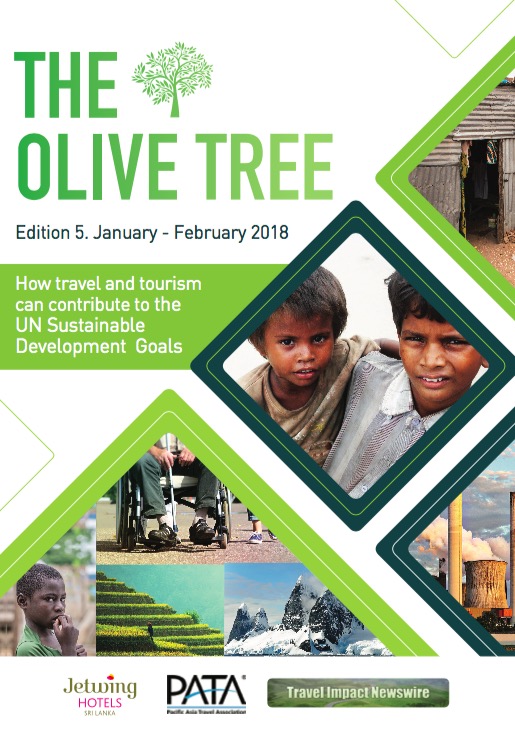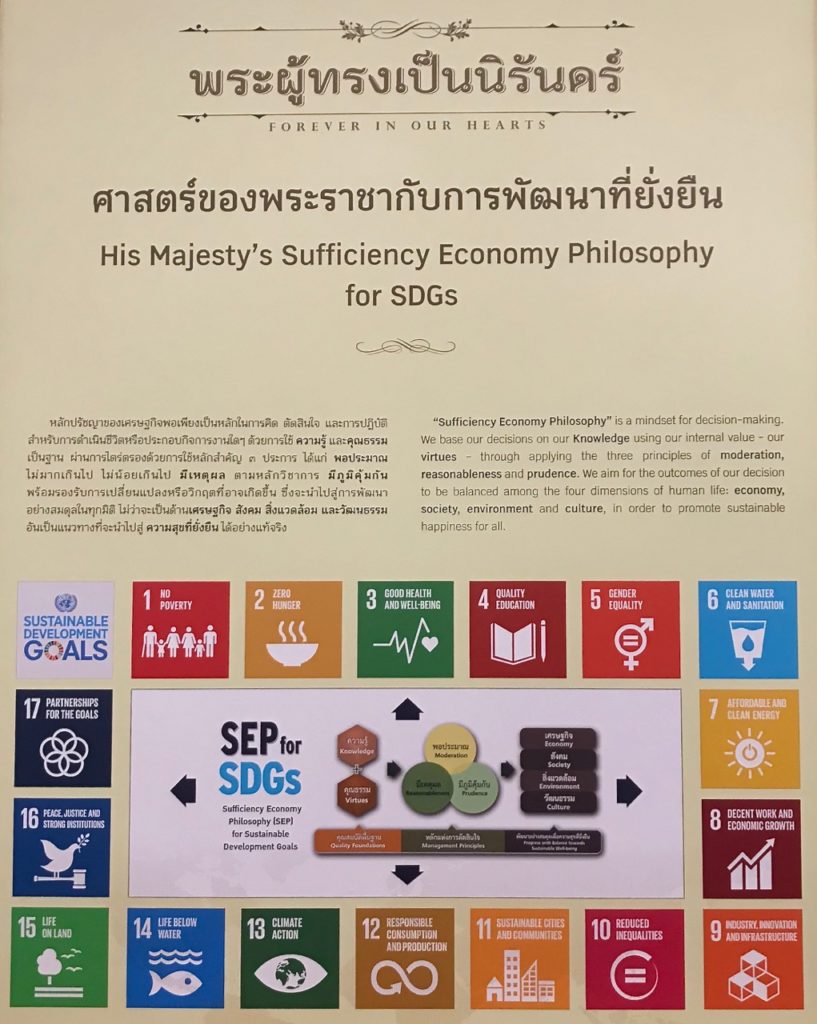
3 Jan, 2018
Mandela Peace Summit, Sufficiency Economy amongst highlights of The Olive Tree Edition 5
Bangkok – The January-February 2018 edition of The Olive Tree has been published on the Travel Impact Newswire website. This Edition 5 of the first and only publication designed to help travel & tourism achieve the UN Sustainable Development Goals is sponsored by Jetwing Hotels Sri Lanka, the Frangipani Langkawi Resort & Spa, Asian Overland Services and, as of this edition, Creative Travel India. Among the highlights:
Nelson Mandela Peace Summit
The lead story is the Nelson Mandela Peace Summit, a high-level meeting of the United Nations General Assembly (UNGA) on global peace to be held to mark the birth centenary of the late South African President and anti-apartheid leader. It will be held a day before the general debate of 73rd annual session in September 2018.
The summit will be in addition to the events that will be held on 18 July, Mr Mandela’s birthday, commemorated worldwide as Nelson Mandela International Day. Mr. Mandela was born in 1918 and died on 5 Dec 2013.
Introducing the resolution, on behalf of the African Group, Martha Ama Akyaa Pobee (Ghana) said the life of Nelson Mandela had been informed by his selfless commitment and deep sense of duty to South Africa, Africa and humanity as a whole. Mr. Mandela had ushered South Africa out of the insidious system of apartheid and strengthened national unity to avoid a civil war.
The UN General Assembly also “recognized Nelson Mandela’s values and his dedication to the service of humanity, as a humanitarian, in the fields of conflict resolution, race relations, promotion and protection of human rights, reconciliation, gender equality and the rights of children and other vulnerable groups, as well as the upliftment of poor and underdeveloped communities.” It also acknowledged his contribution “to the struggle for democracy internationally and the promotion of the culture of peace throughout the world.”
The centenary year of Nelson Mandela’s birth should be a cause célèbre across global travel & tourism, especially if framed within the context of his memorable quote, “I was called a terrorist yesterday… Today, I am admired by the same people who said I was one.”
Link between Thailand’s Sufficiency Economy and the UN SDGs
For the first time, I have included an image showing the linkage between the UN SDGs and the Sufficiency Economy Philosophy (SEP) of the late Thai monarch, His Majesty King Bhumibhol Adulyadej. The King designed the philosophy in the aftermath of the 1997 Asian economic crisis, which began in Thailand and left a swathe of wreckage region-wide.
The Sufficiency Economy concept broadens the definition of “economy” and suggests an alternative, more holistic form of “development” that looks at both value and virtue of socio-economic-cultural-environmental sustenance. It seeks to help countries avoid becoming the victims of debt and the full-steam-ahead “development process.”
The philosophy was never vigorously mainstreamed in Thailand, but is now gaining traction as the Thai people reflect on the late King’s life and times, and realise that he was right after all. It is also being increasingly adopted by the Thai travel & tourism industry.
Sobering stats
Here are just some of the mind-boggling stats embedded in various items in the Jan-Feb 2018 edition of The Olive Tree.
(+) Nearly a quarter of all deaths worldwide – or 12.6 million people a year – are due to environmental causes. Air pollution alone kills some 6.5 million annually, affecting mostly poor and vulnerable people.
(+) The vast majority of the world’s wastewater is released untreated, affecting drinking water to 300 million people. In addition to the impact on health and environment, pollution also causes over $4.6 trillion (equivalent to 6.2 per cent of global economic output) each year in welfare losses.
(+) Nearly 900 million people worldwide practice open defecation – not because they want to but because they have no choice.
(+) In 2017, the number of hungry people rose to 815 million – the first increase after more than a decade of steady decline.
(+) In 2016, 44.7 million metric tonnes of e-waste were generated, an increase of 3.3 million metric tonnes, or 8 per cent, from 2014. Ths is forecast to rise 17% to 52.2 million metric tonnes by 2021. In 2016, only about 20%, or 8.9 million metric tonnes, of all e-waste was recycled.
(+) For almost 100 million people, medical expenses are high enough to push them into extreme poverty, forcing them to survive on just $1.90 or less a day.
(+) If current trends persist, there will be 3.5 million new adolescent HIV infections by 2030.
(+) An estimated 70.9 million youth were unemployed in 2017. That is expected to rise in 2018 to 71.1 million. About 39% of young workers in the emerging and developing world – 160.8 million youth – are living in moderate or extreme poverty (less than $3.10 a day), and more than two in every five young people in today’s workforce are unemployed or are working but poor.
(+) More than half of the global population – some four billion people – have no social security protection.
(+) Some one billion mountain people – about 13% of the global population – are increasingly being impacted by the effects of climate change and climate-induced disasters.
(+) In 2016, an estimated 235 billion square metres of total floor area was reached. Over the next 40 years, an additional 230 billion m2 buildings will be constructed – the equivalent of adding the floor area of Japan to the planet every year to 2060. When upstream power generation is included, buildings and construction account for 39 per cent of energy-related CO2 emissions.
Download the full publication here: https://www.travel-impact-newswire.com/wp-content/uploads/2017/07/OliveTree-Edition5-FINAL-HireVersion.pdf






Liked this article? Share it!